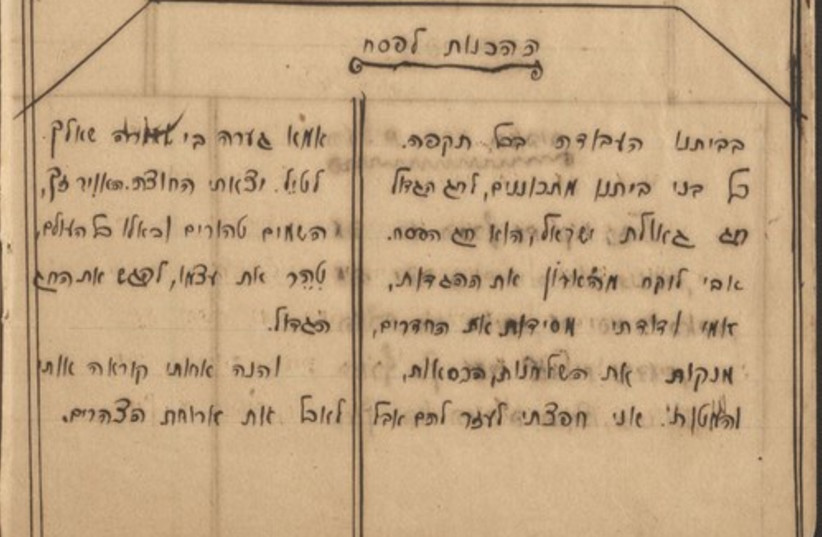Passover is here, which is good news for those who like getting together with the family. Yet, this period is often accompanied by mental anguish and lots of pressure and stress related to organizing the house and making arrangements for Seder night and the whole holiday. Add in the enormous financial expenses, and the common family pressures surrounding holiday gatherings, such as relatives who don’t get along. Stress can have many adverse effects on health, particularly cardiovascular health, and in extreme cases it can even trigger a cardiac event.
Recently, an increasing number of studies have examined and confirmed the link between stress, heart disease and cardiac events. A study at Harvard found a link between stress and heart disease, and researchers concluded that chronic stress should be considered an important risk factor for cardiovascular disease. Another study, also conducted by Harvard researchers, examined the link between stress at work and heart disease. They found that women who have a high level of stress at work, have a 40% increased risk of developing heart disease, heart attack, or needing surgery to open coronary arteries.
These studies and others in this area have focused on chronic stress and the long-term impact of stress on our health. But what about acute points of pressure? Research shows that extreme mental stress causes a significant increase in the level of stimulant hormones in the blood such as adrenaline, norepinephrine and dopamine, which puts additional strain on the heart muscle. This muscle has little time to rest and needs to constantly be in action.
With existing heart problems, the extreme stress and the chain of reactions that follow can cause arrhythmias and even a cardiac event. It’s important to note that stress is not a major and sole cause of a heart attack per se; however, it can certainly aggravate existing conditions of which we sometimes aren’t even aware.
Also, in recent years, doctors have noticed many more cases of "broken heart syndrome" in which people come to the ER complaining about heart pain. Lab tests show that the patient is experiencing a heart attack which isn’t caused by a blocked artery; it’s due to excess stress.

Many of us are in a risk group for a cardiac event such as smokers, diabetics and those with high blood pressure, among others. However, other factors produce risk (some of which have few physical symptoms and therefore fly under the radar) especially familial genetic predispositions to heart problems. The problem is more severe in women, who might have show symptoms that don't align with our typical understanding of cardiovascular distress. Often, doctors ignore symptoms that may indicate a big problem, and diagnosis of a woman’s cardiac problem is delayed and even missed.
As a specialist cardiologist, my initial medical recommendation to the public is, of course, to eliminate risk factors. Don’t smoke, adopt a healthy active lifestyle and maintain a healthy diet. Yet there are risk factors, including stress, which are beyond our control. This is why it’s crucial to get tests such as virtual catheterization to identify cardiac problems in advance. As with other medical issues, early detection can save lives.
